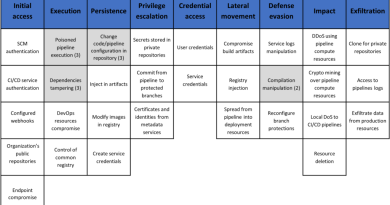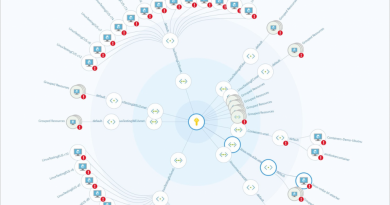Data governance matters now more than ever
Knowing, protecting, and governing your organizational data is critical to adhere to regulations and meet security and privacy needs. Arguably, that’s never been truer than it is today as we face these unprecedented health and economic circumstances. To help organizations to navigate privacy during this challenging time, Microsoft Chief Privacy Officer Julie Brill shared seven privacy principles to consider as we all collectively move forward in addressing the pandemic.
Organizations are also evaluating security and data governance more than ever before as they try to maintain business continuity amid the crisis. According to a new Harvard Business Review (HBR) research report released today commissioned by Microsoft, 61 percent of organizations struggle to effectively develop strong data security, privacy, and risk capabilities. Together with HBR, we surveyed close to 500 global business leaders across industries, including financial services, tech, healthcare, and manufacturing. The study found that 77 percent of organizations say an effective security, risk, and compliance strategy is essential for business success. However, 82 percent say that securing and governing data is becoming more difficult because of new risks and data management complexities brought on by digital transformation.
In a world in which remote work is the new normal, securing, and governing your company’s most critical data becomes more important than ever before. The increased volume of information and multiple collaboration systems create complexity for managing business records with serious cost and risk implications. As organizations across a variety of industries face ever-increasing regulations, many companies move data to different systems of record to manage them and comply with regulations. However, moving content to a different system, instead of managing it in place, can increase the risk of missing records or not declaring them properly.
General availability of Microsoft 365 Records Management
Today, we are excited to announce the general availability of Microsoft 365 Records Management to provide you with significantly greater depth in protecting and governing critical data. With Records Management, you can:
- Classify, retain, review, dispose, and manage content without compromising productivity or data security.
- Leverage machine learning capabilities to identify and classify regulatory, legal, and business critical records at scale.
- Help demonstrate compliance with regulations through defensible audit trails and proof of destruction.
You can now access Records Management in the compliance center in Microsoft 365.

Striking the right balance between data governance and productivity: Records Management is built into the Microsoft 365 productivity stack and existing customer workflows, easing the friction that often occurs between enforcing governance controls and user productivity. For example, say your team is working on a contract. Thanks to built-in retention policies embedded in the tools people use every day, they can continue to be productive while collaborating on a contract that has been declared a record—such as sharing, coauthoring, and accessing the record through mobile devices. We have also integrated our disposition process natively into the tools you use every day, including SharePoint and Outlook. Records versioning also makes collaboration on record-declared documents better, so you can track when edits are made to the contract. It allows users to unlock a document with a record label to make edits to it with all records safely retained and audit trails maintained. With Records Management, you can balance rigorous enforcement of data controls with allowing your organization to be fully productive.
Building trust, transparency, and defensibility: Building trust and providing transparency is crucial to managing records. In addition to continuing to audit all events surrounding a record in our audit log, we’re excited to announce the ability to obtain proof of disposal and see all items automatically disposed as part of a record label. Proof of disposal helps provide you with the defensibility you need, particularly to meet legal and regulatory requirements. Learn more in this Microsoft docs page.
Leveraging machine learning for scale: Records Management leverages our broader investments in machine learning across information protection and governance, such as trainable classifiers. With trainable classifiers, you can train the classification engine to recognize data that is unique to your organization. Once you define a record or retention label, you can apply the label to all content that matches a trainable classifier that was previously defined. So, for example, any document that appears to be a contract or have contract-related content will be marked accordingly and automatically classified as a record. For more information on creating trainable classifiers, please see this documentation. Apart from using trainable classifiers, you can also choose to auto-apply retention labels either by matching keywords on the content, its metadata, sensitive information it contains, or as the default for a particular location or folder. These different auto classification methods provide the flexibility you need to manage the constantly increasing volume of data.
Please visit this portal to learn more about Records Management.
Importance of information protection and governance
There’s never been a more important time to ensure your data, especially your most critical data, is protected and governed efficiently and effectively. Records Management is generally available worldwide today, and you can learn even more in our post on Tech Community. Eligible Microsoft 365 E5 customers can start using Records Management in the Compliance Center or learn how to try or buy a Microsoft 365 subscription.
Lastly, as you navigate this challenging time, we have additional resources to help. For more information about securing your organization in this time of crisis, you can visit our Remote Work site. We’re here to help in any way we can.
READ MORE HERE



